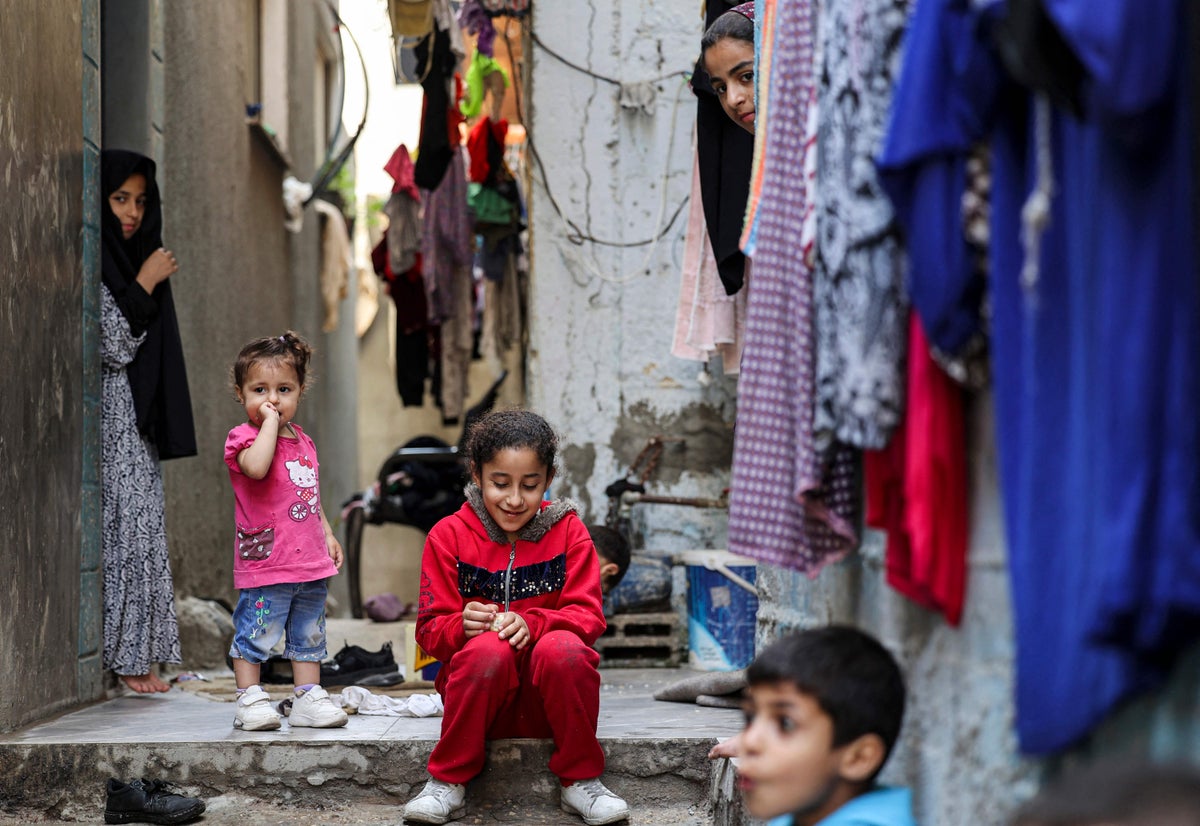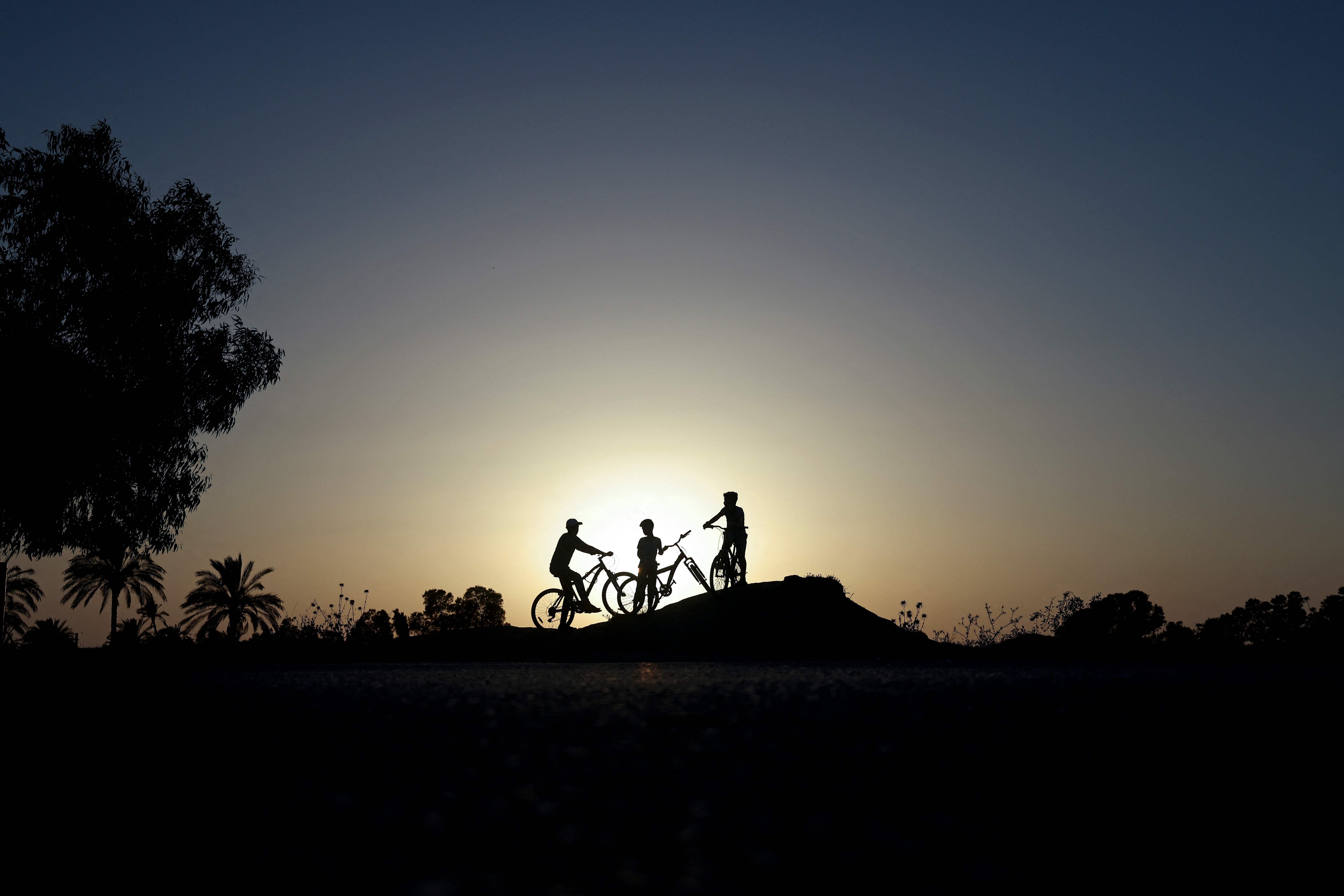
More than half of all children in Gaza have contemplated suicide, while three out of five are self-harming after living 15 years under an Israeli and Egyptian blockade, according to Save The Children.
In a new report entitled “Trapped”, the global rights group said their research showed that in total four out of five children in the besieged strip are living with depression, grief and fear, a significant increase from a similar survey taken just four years ago.
They urged the Israeli government to immediately lift the air, sea and land blockade on Gaza, in place since the militant group Hamas violently seized control of the 25-mile-long enclave in 2007. They also called on Israel to work on stopping the mental health crisis which, it said, had “dramatically deteriorated” in Gaza, which is home to more than two million people, nearly half of them children.
Human Rights Watch released a similar plea to lift restrictions on Tuesday, saying that the 15-year Israeli and Egyptian blockade had turned the enclave into an “open air prison”.
In a report also released to coincide with the 15-year anniversary of the closure, they said the blockade had devastated the economy in Gaza, “contributed to fragmentation of the Palestinian people”, and “formed part of the Israeli authorities’ crimes against humanity of apartheid and persecution against millions of Palestinians”.
Israel has vehemently rejected claims that it is committing apartheid and has defended the blockade saying it is essential to the security of its citizens.
The Israeli embassy in London slammed HRW’s report, saying that the global rights group “has a track record of bias against Israel”.
Ohad Zemet, an Israeli embassy spokesperson, told The Independent:
“Unequivocal proof of the report’s one-sided and biased nature is provided as the report concerns Gaza and yet ignores the fact that Hamas, a UK-recognised terrorist organisation that controls the Gaza Strip, has repeatedly fired tens of thousands of rockets from densely populated civilian areas into Israel at civilian targets.”
Israel captured the West Bank, East Jerusalem and Gaza in the 1967 six-day war and immediately occupied east Jerusalem, which was annexed in 1980, in a move not recognised internationally.
In Gaza, Israel withdrew its troops and settlers from the strip in 2005 but imposed a crippling blockade after the militant Hamas group, which has been declared a terrorist organisation by the UK, violently seized power two years later.
Since then militants in Gaza and the Israeli military have engaged in conflicts that have killed thousands of Palestinians alongside hundreds of Israelis.
United Nations rights experts and the International Committee of the Red Cross believe the blockade of Gaza to be contrary to international law, by constituting “collective punishment” preventing civilians from securing their basic rights.
Save The Children said in its report that since the blockade began there had been “a huge increase” in children who reported feeling fearful, nervous and sad or depressed.
Their report also found that more than half of Gaza’s children have contemplated suicide and three out of five are self-harming.

Save the Children consulted 488 children and 168 parents and caregivers in the Gaza Strip in a repeat of similar research by the child rights organisation in 2018.
“It is now more critical than ever that the government of Israel lifts the blockade of the Gaza Strip, and that local authorities, the international community and donors support the rapid strengthening of child protection and mental health support services for affected children,” Save the Children said.
Human Rights Watch, meanwhile, said the closure blocks most Gaza residents from going to the West Bank, and travelling abroad via Israel, restricting their rights to work and an education. HRW said restrictive Egyptian policies at its Rafah crossing with Gaza, including unnecessary delays and mistreatment of travellers, have also exacerbated the closure’s harm to human rights.
“Israel, with Egypt’s help, has turned Gaza into an open-air prison,” said Omar Shakir, HRW’s Israel and Palestine director. “As many people around the world are once again travelling two years after the start of the Covid-19 pandemic, Gaza’s more than two million Palestinians remain under what amounts to a 15-year-old lockdown.”







